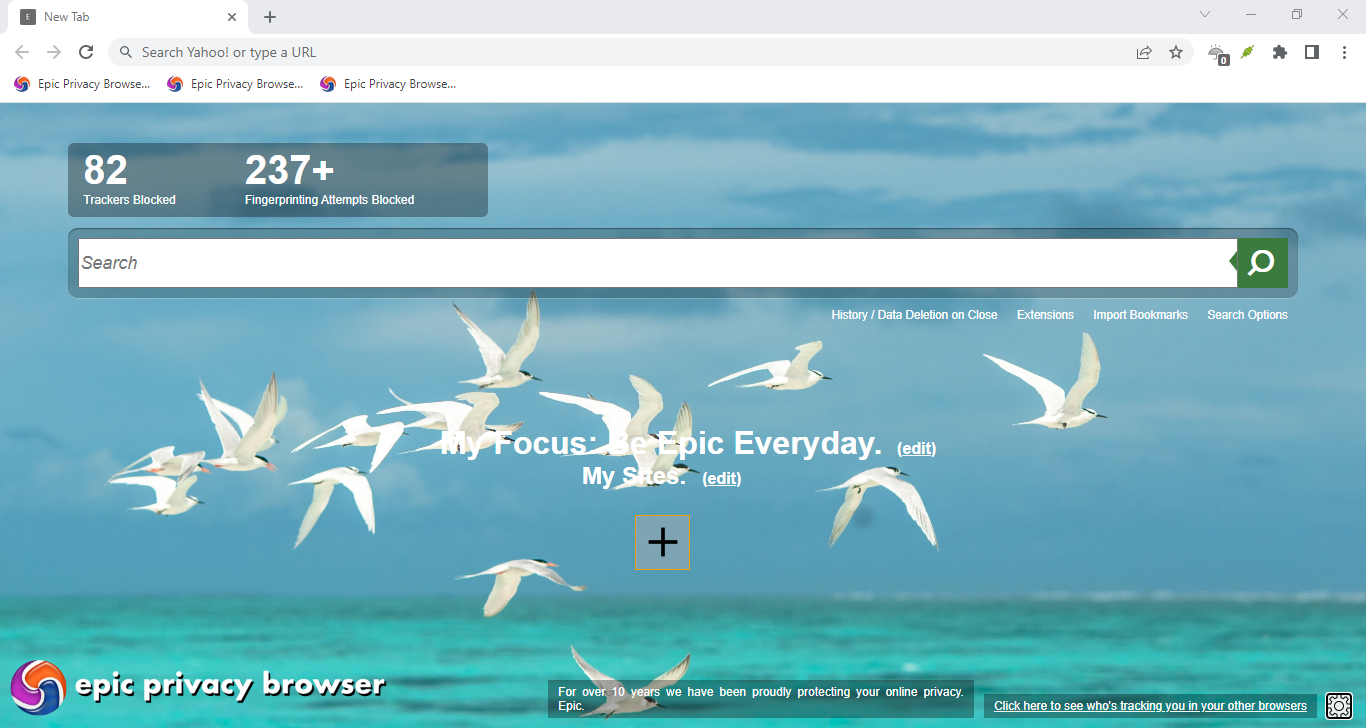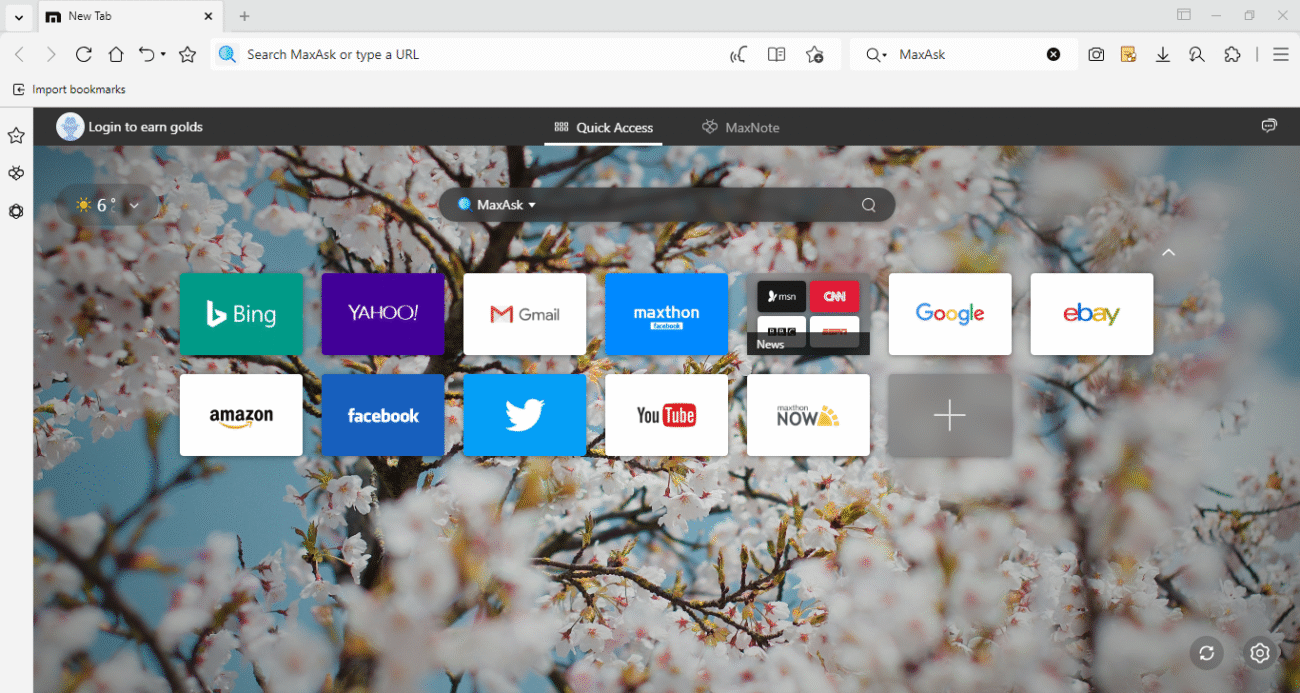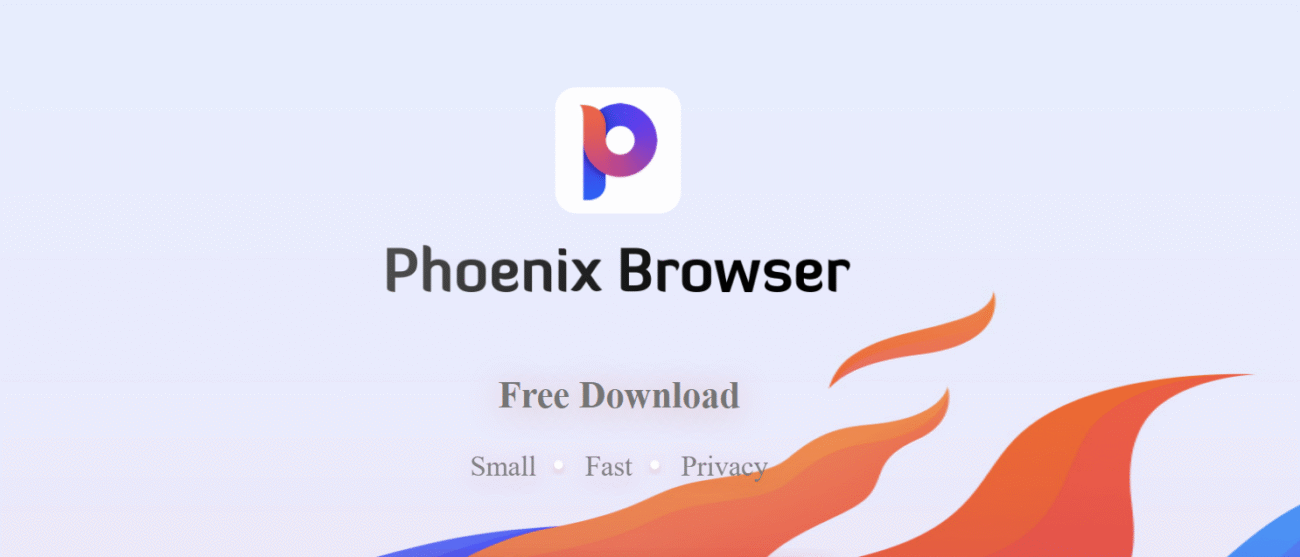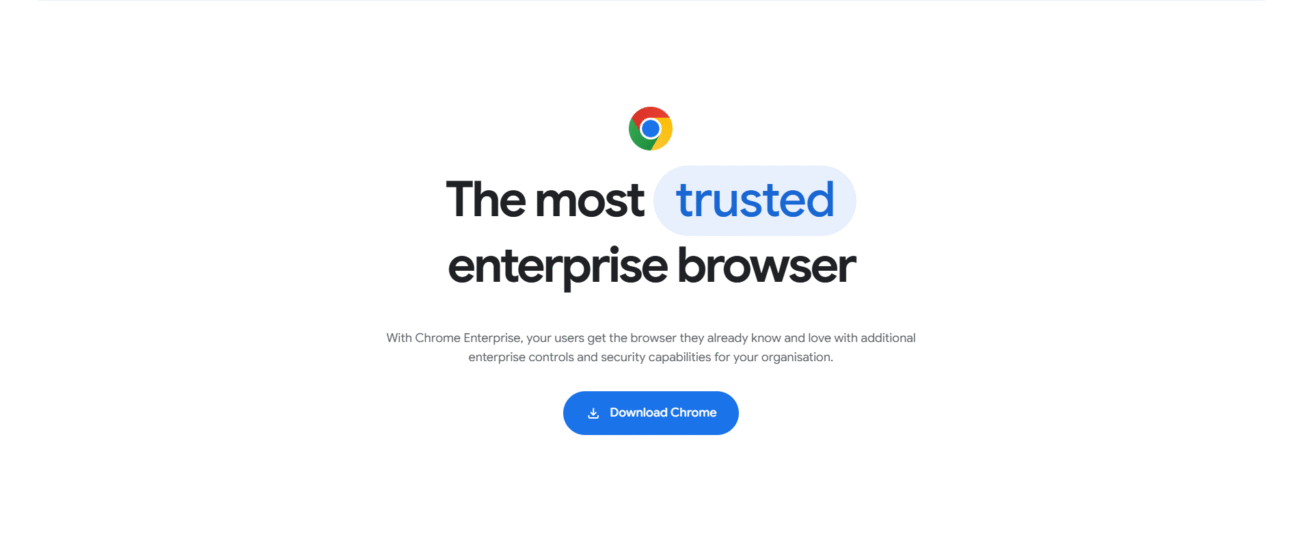Blog
Epic Browser Review: Features, Usage, and Competition

Why you can trust TechRadar
We spend hours testing every product or service we review, so you can be sure you’re buying the best. Find out more about how we test.
Epic Browser is a popular privacy-centric web browser built on the Chromium codebase and released in 2010. It’s owned by an Indian software company called Hidden Reflex, founded by Alok Bhardwaj.
Along with tons of privacy features, its biggest USP is its simple and approachable interface that makes it easy to use for most people.
In this review, we’ll cover Epic’s features, privacy policies, and pros and cons in detail — know everything you have to before you decide if it’s the best browser for you.
Epic Browser: Features
Epic is always in private browsing mode, which means exiting the browser deletes all browser data. The browser is based on Chromium, which the developers claim to have sanitized by removing Google’s tracking code.
Third-party cookie tracking is disabled by default, and its developers claim the browser is well equipped to protect against all kinds of fingerprinting techniques.
Epic’ headline features are its uBlock-based ad-blocker, and the encrypted proxy that encrypts and routes traffic between your computer and the internet, masking your location for added privacy. The proxy has nodes in seven countries including the US, the UK, Canada, Singapore, Germany, France, and the Netherlands.
The Epic browser comes with a “Reader” mode that lets you convert web pages into plain text, making it easier for you to skim through the paragraphs. Plus, this mode isn’t cluttered with unnecessary ads or images, either. This feature is perfect for you if you want your focus only on the written text with no distractions whatsoever.
In addition to Windows and macOS, the browser is also available for Android and iOS devices. The Android version of the browser offers some additional functions, such as the “Audio Queue” feature that’ll use Android text-to-speech function to read out the text on queued webpages.
Epic Browser: Privacy
The first thing Epic Browser does to keep your online activities private is not store your browsing data.
What’s more, all third-party cookies, annoying ads, and even fingerprinting attempts by hackers are blocked — Epic ensures you get a clean and clutter-free environment to work with every day.
Furthermore, it comes with a built-in encrypted proxy that hides your IP address from everyone, making it impossible for anyone to track you.
The browser uses two search engines, with the default being Yahoo. While the browser encrypts all search queries to Yahoo, the search engine, and a few other Yahoo websites, bypass both its proxy and ad-blocker.
If that spooks you, use the browser’s EpicSearch search engine that strips all your personal information before passing on your search query to a search engine. However, EpicSearch comes with a price tag and costs $2.50/month.
Epic Browser: Ease of use
The browser’s interface is the standard fare. There’s a prominent search bar in the middle of the screen. Like Brave, Epic visualizes privacy protections by displaying stats about the number of trackers and fingerprinting attempts it has blocked.
Unlike other browsers, Epic doesn’t ship with a set of favorite websites of its own, and instead gives you the option to plug the ones you visit most often.
Below the search bar, you get links to a few common browser functions. There’s one that’ll take you to the browser’s privacy and security settings, and another to enable/disable Epic’s ad blocker, and encrypted proxy extensions. You’ll also be able to switch to the paid EpicSearch search engine from the dashboard itself.
If you’ve enabled the two Epic extensions (ad blocker, and encrypted proxy), you’ll get buttons to control their behavior next to the address bar. For instance, you can use the encrypted proxy’s icon to change the country.
Next to these plugin buttons, you have a button to toggle the side panel that can either display your bookmarks, or reading list of saved articles and web pages that you can read later or when offline.
Epic Browser: Competitors
Epic seems to be competing on two criteria — usability and privacy. In terms of usability, it isn’t much different from its peers. Thanks to the browser’s Chromium-base, you shouldn’t face any issues switching to it from another browser.
In terms of privacy and user security, Epic is up there with the best. Its encrypted proxy feature is free to use and gives you the option to switch between 7 different countries. Opera’s VPN is free to use as well, but doesn’t offer as many countries. Similarly, Edge too has a free VPN, but it comes with a monthly usage cap.
Similarly, just like Brave, Vivaldi, and Opera, Epic too ships with a built-in ad blocker, and has several protections to thwart attempts to fingerprint you.
However, besides the ad-blocker and encrypted proxy, Epic doesn’t have any extensions of its own. Instead it falls back on its Chromium-base to claim compatibility with virtually all of the extensions of the Chrome Web Store.
Epic also lacks performance settings like the ability to put inactive tabs to sleep that you get with many of the top browsers such as Chrome, Edge and Firefox. It also doesn’t have any AI-powered assistants that are becoming a norm in mainstream browsers.
Epic Browser: Final verdict
Try Epic if online security is paramount. It’s one of the few browsers with a built-in encrypted proxy that hides your IP address. Turning on this feature will make it impossible for your ISP, government officials, or even hackers to follow you around the internet.
The Epic browser is also quite easy to use and comes with a navigable interface.
New users won’t have to muck about its settings to take advantage of its privacy-centric features, which is a definite plus.
However, it’s also important to remember that the browser lacks some of the features that we have come to expect from modern day web browsers, such as an AI-powered assistant. But if you can live without these convenience features, Epic is a good option for privacy conscious users.
We list the best privacy tools and anonymous browsers.












